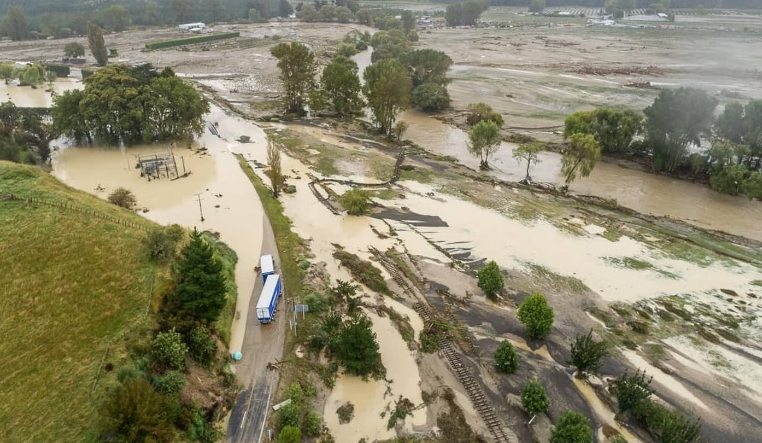
The cyclone hit parts of the upper North Island last month, causing severe damage to homes, businesses and infrastructure.
A memo prepared for the Minister of Defence in October last year said the workforce was still "significantly fragile" after being deployed to quarantine facilities during the Covid-19 pandemic.
A previous memo, circulated in June, raised concerns that the performance of the defence force over the next decade was at "considerable risk".
An NZDF spokesman said it had been able to meet requests for help during recent weather events, but the expectations of civic authorities had to be managed.
The October memo said the NZDF would be able to provide a range of responses to severe weather events in the high-risk period over summer.
However, high attrition rates had resulted in workforce hollowness at key leadership levels and in skilled trades, which meant response options would be constrained and would be at "at reduced capacity and timeliness".
The ability to introduce new capabilities and regenerate the force would also be constrained by the staffing issues, which were compounded by Covid-19 and the full-scale war in Ukraine affecting maintenance schedules.
The army, which provided the bulk of defence force staff to assist with the Covid-19 response, would be able to provide a reduced level of support to civil defence, the memo said.
Its ability to deploy military engineers was limited due to experienced staff leaving and the need to support operations in the Antarctic.
The air force would generally have two or three C-130H Hercules aircraft available at any given time, while the P-3K2 Orion fleet was down to three aircraft and two aircrew.
NH90 and A109 helicopters would be available, but navy Seasprite helicopters would have some limitations due to serviceability.
The navy would be able to meet all immediate domestic emergency responses, but there would be some limitations on any broader disaster relief efforts, the memo said.
An NZDF spokesman said in civil defence situations, resources were deployed at the direction of regional or national emergency management agencies.
In the case of the short-term responses for the Auckland floods and Cyclone Gabrielle, the defence force had been able to meet the requests of civilian authorities, with some issues.
High attrition rates meant personnel were deployed for longer duty periods.
Surveillance tasks were conducted by C-130H Hercules aircraft rather than P-3K2 Orions, which are down to two crew with three airframes and are being withdrawn from service five months earlier than planned due to staff shortages.
An Offshore Patrol Vessel would likely have been deployed to Napier instead of a frigate, but none were available as both were confined to Devonport naval base, reportedly due to staff shortages.
Almost 1000 personnel were deployed to assist the response to Cyclone Gabrielle but if another major event had happened, either in New Zealand or the wider South Pacific region, the defence force would have faced difficult decisions, the spokesman said.
The defence force believed the expectations of civil authorities had been managed appropriately during the response.
Attrition across the military had continued at high rates since the memo was submitted, the spokesman said.
Defence Minister Andrew Little said the work of NZDF personnel responding to the recent weather disasters had been outstanding.
He had been well briefed on current personnel issues affecting the defence force, Mr Little said.
"They are a significant concern to me and I am making it my priority to address them," he said.
As well as dealing with the immediate personnel issues, it was important to also consider issues of equipment now and for the longer term, which were a central focus at present, Mr Little said.












